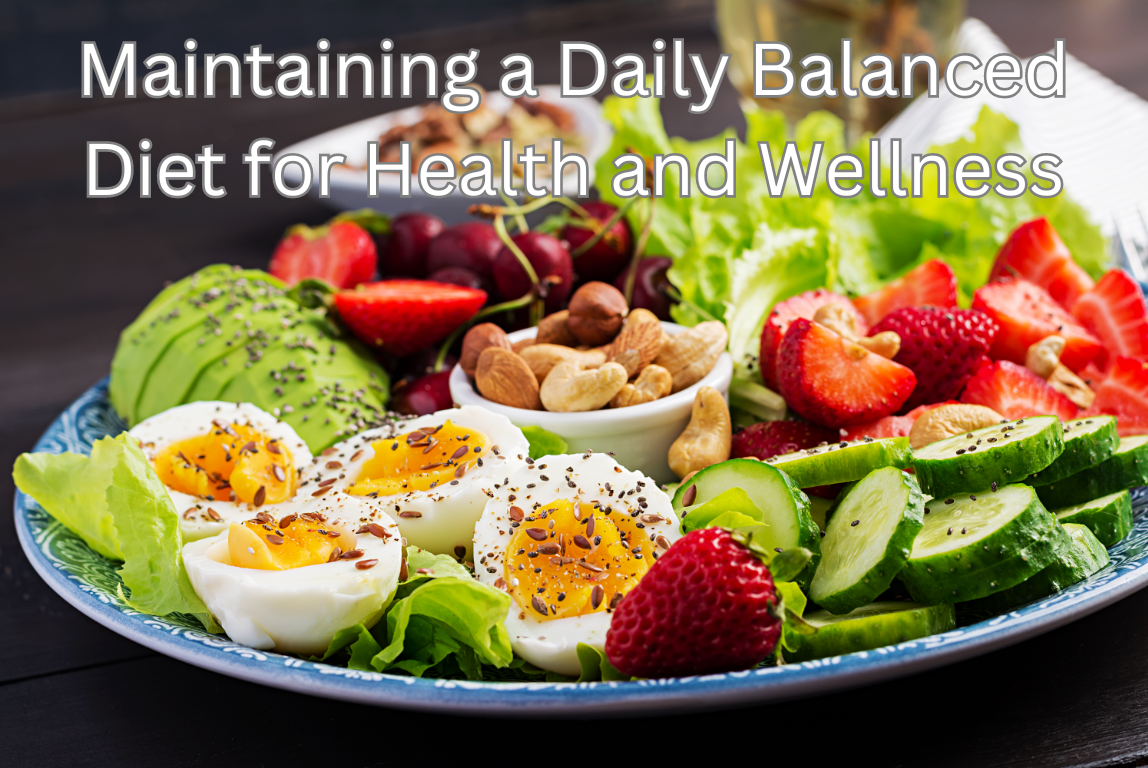When it comes to maintaining good health and overall wellness, one of the most important factors to consider is your diet. A daily balanced diet plays a crucial role in providing your body with the necessary nutrients, vitamins, and minerals it needs to function optimally. By following a balanced diet, you can support your immune system, maintain a healthy weight, and reduce the risk of chronic diseases. We at Young Livings guide you on how to maintain a daily balanced diet for Health and Wellness.
The Basics of a Balanced Diet
A balanced diet consists of a variety of foods from different food groups, ensuring that you get all the essential nutrients your body needs. Here are the key components of a balanced diet:
- Protein: Include lean sources of protein such as chicken, fish, tofu, beans, and lentils in your meals. Protein is essential for building and repairing tissues in the body.
- Fruits and Vegetables: Aim to include a colorful variety of fruits and vegetables in your diet. They are rich in vitamins, minerals, and antioxidants that help protect against diseases.
- Whole Grains: Choose whole grains like brown rice, quinoa, whole wheat bread, and oats. They are high in fiber and provide sustained energy throughout the day.
- Dairy or Dairy Alternatives: Include low-fat dairy products or dairy alternatives like almond milk or soy milk for calcium and vitamin D.
- Healthy Fats: Incorporate sources of healthy fats such as avocados, nuts, seeds, and olive oil. These fats are important for brain health and help absorb fat-soluble vitamins.
Portion Control
In addition to choosing the right foods, portion control is crucial for maintaining a balanced diet. It’s important to be mindful of the quantity of food you consume. Here are some tips for portion control:
- Use smaller plates and bowls to help control portion sizes.
- Fill half of your plate with vegetables and divide the other half between protein and whole grains.
- Avoid eating large amounts of high-calorie foods, such as sugary snacks and fried foods.
- Listen to your body’s hunger and fullness cues. Eat until you are satisfied, not overly full.
Meal Planning and Preparation
Meal planning and preparation can greatly assist in maintaining a daily balanced diet. By planning your meals in advance, you can ensure that you have a variety of nutritious options readily available. Here are some tips for effective meal planning and preparation:
- Create a weekly meal plan that includes a balance of protein, fruits, vegetables, whole grains, and healthy fats.
- Make a shopping list based on your meal plan to avoid impulse purchases of unhealthy foods.
- Prepare meals and snacks in advance to save time and make healthier choices when you’re busy.
- Experiment with new recipes and flavors to keep your meals interesting and enjoyable.
Hydration
Staying hydrated is an essential part of maintaining a balanced diet and overall health. Water helps transport nutrients, regulate body temperature, and flush out toxins. Aim to drink at least 8 glasses of water per day, and more if you are physically active or in hot weather.
Seek Professional Guidance
If you have specific dietary requirements or health concerns, it is always advisable to seek professional guidance. A registered dietitian or nutritionist can provide personalized advice and help you create a balanced diet plan that suits your individual needs.
In conclusion, maintaining a daily balanced diet is crucial for promoting health and wellness. By incorporating a variety of nutrient-rich foods, practicing portion control, and staying hydrated, you can support your overall well-being and reduce the risk of chronic diseases. Remember, small changes in your diet can lead to significant improvements in your health in the long run.
